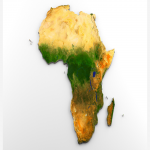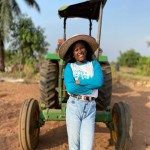On Idjwi, the largest island in Democratic Republic of Congo, a way of life is dying.
The Bambuti, one of several Pygmy groups in Congo, are among central Africa's oldest indigenous peoples. For millennia, they have lived as hunter-gatherers, surviving off the forest's bounty of plants, birds and monkeys.
Idjwi, in the middle of Lake Kivu, has been spared the ravages of wars in eastern Congo that have killed millions of people since 1996, mostly from hunger and disease.
But for its indigenous inhabitants, the advance of another culture has proved nearly as devastating. The Bambutis, like Pygmy groups across central Africa, have been pushed out of a native land to which they could assert no legal title -- in this case, to make way for an exploding ethnic Bantu population who now make up more than 95 percent of Idjwi's 280,000 inhabitants.
Around 1980, the Bambuti say, local authorities and customary chiefs from the Bahavu, a Bantu people, expelled them from the forests and turned the land over to Bahavu to farm and build houses.
The Bambuti lost their livelihood and, with few if any assets, no education, and no experience of how to support themselves in an alien environment, their society has withered.
They are no more than 7,000 on the island, relocated on uncultivable land and scattered on the coast in makeshift camps on the fringe of villages, in total destitution.
Most cannot read or write, and lack the money to send their children to school.
At national level, Congo's parliament first discussed a law to protect Pygmy rights in 2007, but it has yet to vote on a bill.
Thus the Bambuti scrape a living clearing fields or carrying heavy loads for Bahavu landowners, who often treat them with contempt.

